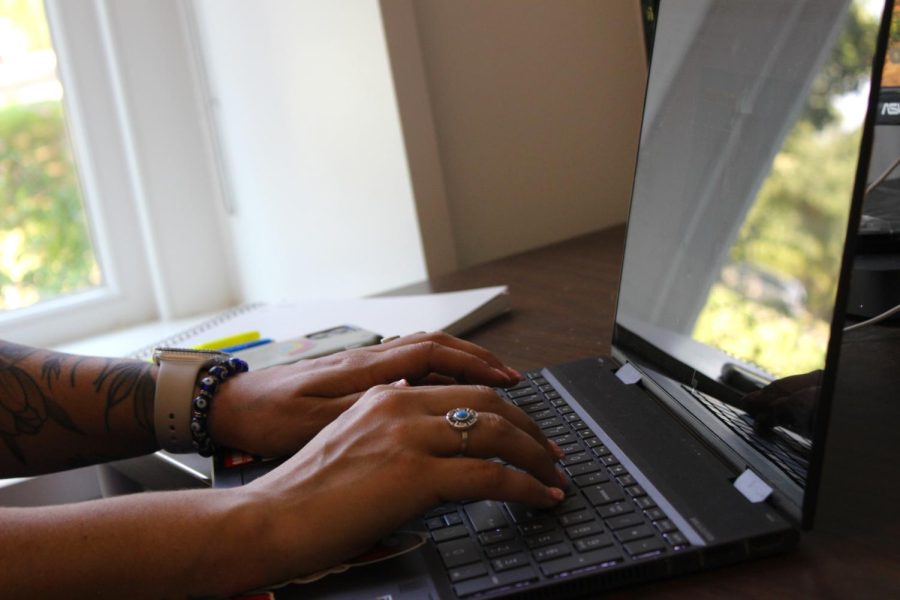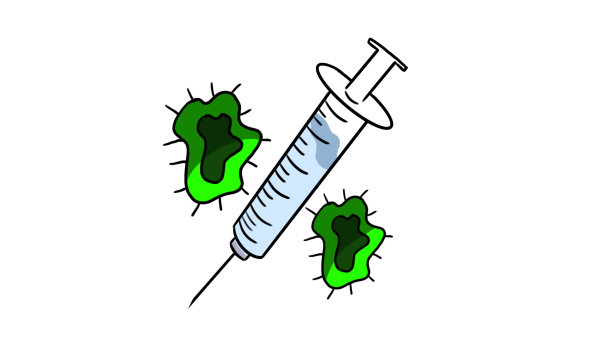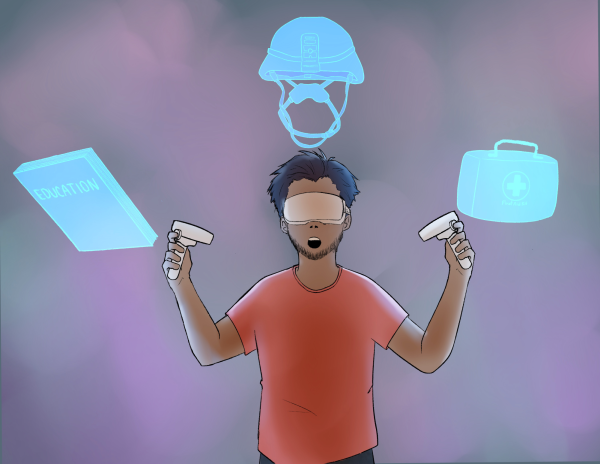OPINION: Academic stress, mental health struggles play into daily burnout
Claire Lawrence / Hilltop Views
The overwhelming amount of academic and social pressures experienced in college do not make every day tasks easy. Juggling school work, a social life and other jobs can become overwhelming almost overnight.
The World Health Organization reported that the COVID-19 pandemic triggered a 25% increase in prevalence of anxiety and depression worldwide. The rise of mental health issues came to the forefront of the public’s awareness during the pandemic. Mental health issues have always existed, but COVID-19 positively revealed the importance of taking care of one’s mental health. Yet, there is still a negative stigma around mental health, even though depression, anxiety and burnout are common issues many people struggle with. This is especially true for those in high school and college who may be coping with other mental health issues on top of the stress to succeed academically.
Stress is an effective motivator in completing tasks, if it’s not relied on all the time. It is very common for the chronic procrastinator to use stress to cram for that test or pull an all-nighter to complete a last-minute assignment. I’ve stayed up plenty of nights working on projects last-minute: Too much stress can lead to a hard crash.This constant strain of stress leads to a condition known as burnout. It may take days, weeks or months to fully recover from severe burnout due to stress, especially when compounded with preexisting anxiety issues.
According to MedicalNewsToday, stress can cause headaches, depression, insomnia, decreased immune function and stomach issues, just to name a few. In this constant state of chronic stress, the body wears out over time and eventually asks you to rest — at the cost of your health and productivity — leaving you fatigued for weeks. I have a bad habit of overworking myself, especially the last two semesters, and spent the whole summer recovering to the point of chronic exhaustion. It was not a fun experience, and I felt that if I had managed my time better, it would not have been as bad.
I’ve dealt with severe anxiety most of my life and for the longest time never had the proper skills to manage it, which fostered my habit of using stress as an unhealthy way to complete my work. The hard part is breaking those habits that procrastination creates; the pressure to perform well in school is difficult to manage when a lot is asked of you. All the while, you’re trying to balance a social life, extracurriculars and jobs. These responsibilities can take over most or all of your free time, leaving no time for self-care.
Acknowledging that we have these struggles isn’t going to solve them immediately because the responsibilities and the work never ends. But acknowledging that these struggles are real is the first step in addressing the issues of mental health and adequate self-care.
Self-care is more than just doing something extravagant for yourself or spending sprees. It can be basic things, like taking the time to clean or taking a nap. These things serve as little breaks for yourself, allowing time for you to stop and take care of yourself, even if it’s only for a few minutes. Remember to take a mental health day if you are stressed out or overwhelmed, because in the long run your health matters more than a day of classes.












